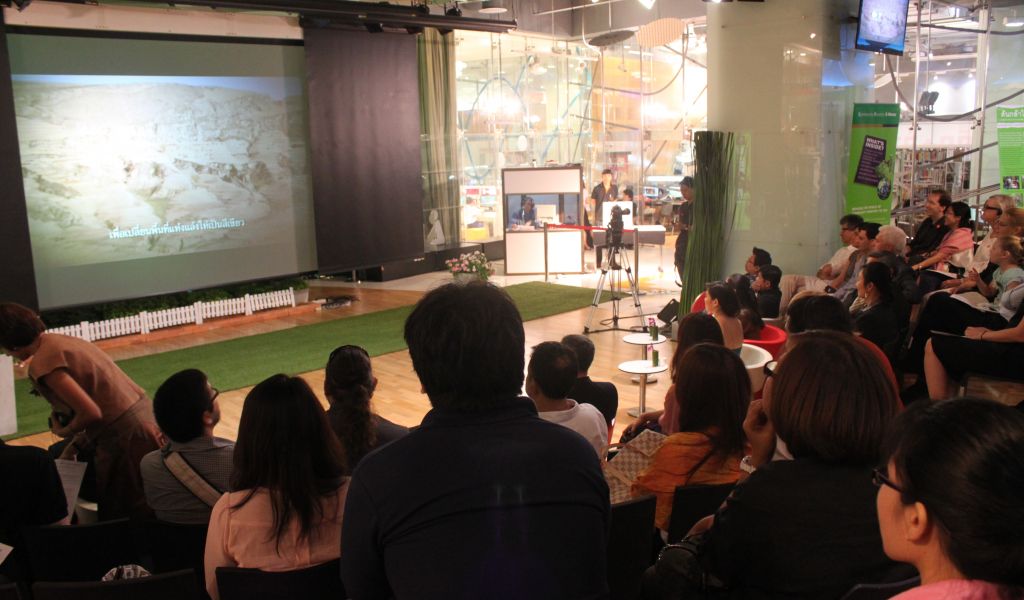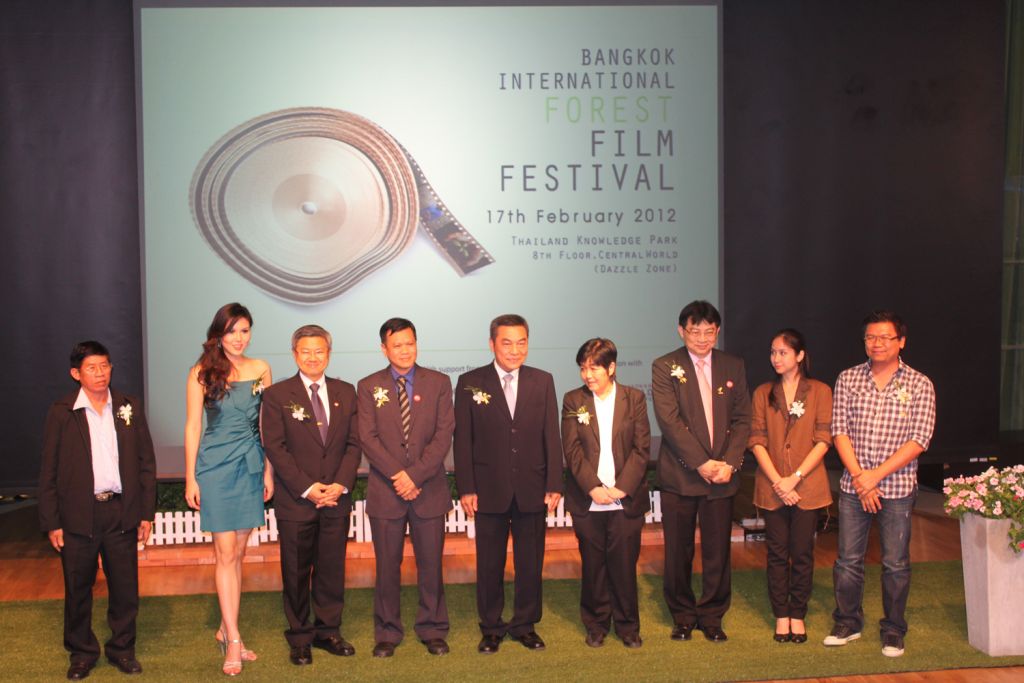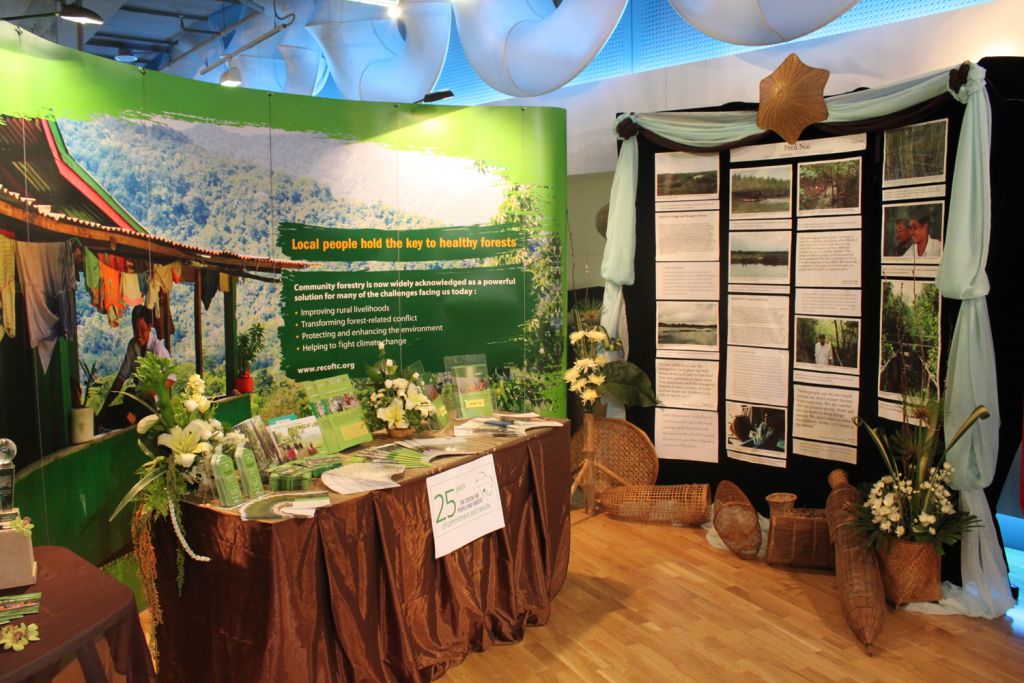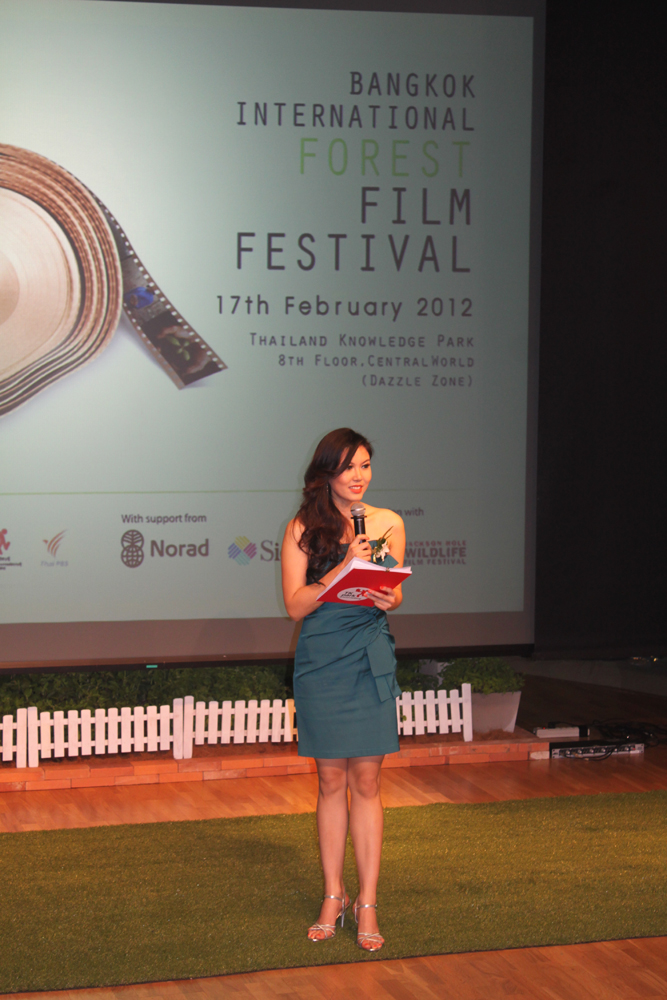Films a Powerful Medium to Protect Forests and Empower Local Communities

How can the media support environmental conservation? One approach is to tell the stories of the importance of these natural resources and the people fighting to protect them.
The first Bangkok International Forest Film Festival, held 17-19 February 2012 to commemorate the 25th anniversary of RECOFTC – The Center for People and Forests, sought to bring these messages to a wider audience and encourage individuals to act through inspirational tales from around the world. As Prayuth Lorsuwanasiri, Deputy Director General of the Royal Forest Department, Thailand, said in his opening remarks, “Today marks an opportunity, through this partnership, to spread awareness about protecting our natural resources. …I am confident these movies will be useful for our audience, especially for the youth, and bring more accountability to the world at large.”
The 12 films showcased at the BIFFF were simultaneously beautiful, heartbreaking, and inspiring, with stories ranging from the devastating loss of orangutan habitat in Indonesia in Green to the inspirational, local-driven restoration of the gigantic Loess plateau in China in Hope in a Changing Climate. A range of film styles and techniques, from traditional narrative documentary to small-scale animation and aerial and near-microscopic photography, emphasized the power of using different media to convey critical messages. The films were provided courtesy of the Jackson Hole Film Festival, New York, to commemorate the United Nations International Year of Forests, 2011.
Co-hosted by Thailand Knowledge Park (TK Park), The Royal Forest Department of Thailand and Thai Public Broadcasting Service, youth were a key demographic in the BIFFF audience, one that RECOFTC’s Executive Director, Tint Lwin Thaung reached out to in his welcoming remarks: “It is very important to share the message of the importance of forests and the role of community forestry with the public, especially among the youth.”
The significance of holding the film festival in Thailand, still recovering from the most devastating floods in recent memory, was not lost on the participants. Panelist Miss Earth Thailand, 2011, Nicharat (Grace) Tungtisanont, who holds an MSc in agriculture and resource economics, said that she hopes the flooding will make people more aware of the importance of protecting our environment. “The recent flooding in Thailand, the worst natural disaster our country has faced, I think has woken us up,” she says. “It made us realize how important forests are and that we can’t take them for granted.”
Friday’s opening ceremony featured a panel discussion on “Influencing positive environmental changes through the role of media and arts,” moderated by Miss Chonlanat (Palm) Koaykul of Thai PBS with guest speakers Miss Grace Tungtisanont, Mr. Suparp Rimtheparthip, Editor of Bioscope magazine and Mr. Amporn Phaetsart, President of the Conservation and Development Group, Pred Nai Community, the star of one of the opening night films, Voices of the Forest – Thailand. Together with Hope in a Changing Climate, the featured films demonstrate local people taking control of degraded natural resources to pull themselves out of hunger and poverty, while creating a healthier, more vibrant ecosystem that benefits the entire planet.

The key to behavior change is the prospect of clear and fair benefits through the assurance of tenure, and both films document the human journey from subsistence to relative prosperity when such rights are established.

During the roundtable, Mr. Amporn told the audience how the community in Pred Nai had agreed to share and manage resources: “Everyone relies on the forest, whether directly or indirectly… We are focused on restoration and preservation. We tell our people when gathering crabs, “Stop catching hundreds, wait for millions.”
The popular two-day festival was accompanied by a forestry exhibition with plants and products from Thailand’s forests being sampled by city dwellers keen to learn more about forest protection and community forestry in their country.
If there was one take-away message from the festival, it was summed up by Miss Earth, Thailand, herself an environmental activist: “We should do our best to save our earth, our home, together.”


